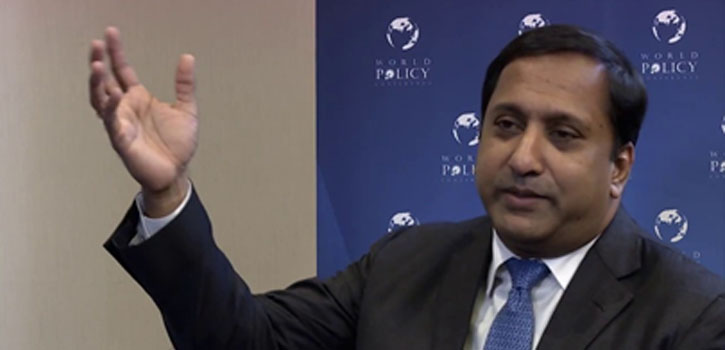Technological changes and social contracts
January 30, 2017 | Expert Insights
Social contracts have been the basis of how we construct societies. Every couple of generations we script new social contracts, and they keep evolving to better reflect our social norms and values.
For our grandparents being on time was crucial for someone to be trusted. To some extent, it reflects the sort of narrative in the industrial economy because if someone were to be late, it would mean that there would be a stop in production. Technological changes first led to substitution of human and animal workforce for machines. Since the advent of advanced computers, we are now substituting the human brains for advanced robots and algorithms.
In the 20th century, liberalism was organised on three presumed pillars:
Large corporate employees like Ford and General Motors had three things in common. First, internal pathways for the employees ensured their upward mobility. Second, unionised workforce could collectively bargain on behalf of the entire community and third was the existence of a regulatory apparatus (that was strong), that would oversee big business and organise labour.
This trait was the essence of the social contract then. For an exchange of full time work, most of the families were assured basic level of welfare, social insurance and upward mobility. The problem we now face is the absence of this tripartite agreement. In the 21st century, in both the online and offline world, work is increasingly organised not in large factories but rather in highly disaggregated and fragmented workplace. Workers increasingly freelance and regulations are left far behind the pace of technological innovation and economic transformation.
This practice is referred to, by many economists as being employed in a ‘fishered’ workplace.
Last year about 400 thousand drivers from UBER went for a class suit in the US against the company on the fact that they were treated as contract labourers and not as employees. They demanded back pay and benefits. A judge proposed a US$ 100 million settlements and said that if the company failed to arrive at a settlement , the cost of a final settlement could be in excess of a 1000 times
So what is the challenge that we face in formulating new social contracts in this rapidly changing technological world.
The main distributive tool that we have, of prosperity trickling down from productivity to wages earned by labour has ceased to function. This is the biggest problem. The decoupling of productivity and wages is a fundamental reason for this structural imbalance. Wealth is being concentrated in the hands of a few who own platforms, robots and algorithms. And those living off labour are struggling. This economically ‘disenfranchised ‘ people, are now beginning to constitute a new political class. They vote for more radicalised political forces and we saw that recently in BREXIT, the big victory of President Donald Trump and the rise of FNP in France; This is basically due to this broad breakdown in trust. If wealth is concentrated in capital, some form of democratisation of capital holding is absolutely necessary.
So what does the future look like? Perhaps we have to be prepared now for new social contracts when technology like block chain and bit coins will become more ubiquitous. Block chain will bring economics and technology together in a way society has never experienced before. Previous technologies like the internet allowed us to create openness and the exchange of information. Block chain allows us to track & trace our interaction, economic transaction and gives us power to disrupt aspects of our own social contract (that we don’t like). For example, removing the central bank as a creator of trust in our money. If you look at the internet, it was more exchange of the information. Block chain will become the medium of exchange of assets and values.


